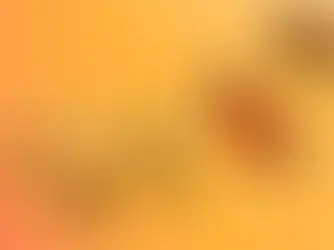
Learning with Purpose: Embracing Intentional Learning (Based on Episode 4)
Aug 26, 2024
4 min read
3
24
0
We’re going to kick things off a little differently for this blog post. I’m getting straight to the main points of intentional learning.
Intentional learning (according to Amber and me) is:
THE holy grail of learning
Actively seeking out information, consciously processing it, and using it to propel personal growth
Amber believes you need to do the following to be a HEALTHY intentional learner:
Embrace the journey
Ask questions
Play games
I believe you need the following to be a HEALTHY intentional learner:
HEALTHY Connection (with yourself and others)
HEALTHY Communication (with yourself and others)
HEALTHY Community
Here’s the simple yet very complicated truth about today’s society: Everyone is capable of learning. Yes, you heard that right—no exceptions, no fine print. This might seem like a no-brainer, but you’d be surprised how often this concept is overlooked and mistreated. Between standardized tests, professional development, annual reviews, special education programs, or just the daily grind of "Do I really have to learn this?", it's not something people allow to sink in or celebrate. EVERYONE is capable of learning.
Intentional learning is the holy grail (yes, Indiana Jones references will be used). It’s a shiny treasure that levels you up throughout your learning journey. But hold on, Indy—before you get to the grail, don’t forget there’s a temple full of booby traps, bumps, and challenges to navigate.
Intentional learning is actively seeking out information, consciously processing it, and using it to propel personal growth. Cramming facts for school isn’t preparing anyone for life, but learning self-awareness WOULD be helpful to teach in ALL traditional education settings and reinforced into and throughout adulthood. When you’re honest with yourself about who you are, where you are in your life, your strengths, challenges, and goals, you’re ready to conquer the world—or at least successfully navigate the first booby trap.
Healthy vs. Unhealthy Learning: How to Spot the Difference
You don’t need to be a rocket scientist to figure out how your brain ticks. Even toddlers are in on this game. I’ve watched my twin toddlers stack blocks, only to see the whole thing come crashing down. One of them will pause, scratch their head, be a bit upset, and then get right back to building while the other will laugh, clap, celebrate, and then they both try again with adjustments. That immediate reflection naturally happens because it’s an innate element of human nature. That’s learning in action, folks and believe it or not you do it too! And it doesn’t stop there. The 13-year-old writing a thesis that goes off the rails, the 16-year-old sweating bullets over counting cash at their first job, or the executive who can’t stop saying “um” during presentations—they’re all learning, too. We all have challenges. But with some personalized strategies, a dash of reflection, and a heap of practice, we can turn those stumbling blocks into stepping stones.
For most people, learning challenges are first identified in traditional education settings, where we are taught that the end goal should be straight As. It should not can cannot continue to be about grades, gold stars, or the perfect attendance awards. True learning is about progress, growth, and understanding. It’s about becoming better, not receiving a perfect score on something you have no intention of remembering long-term. There are two types of intentional learning: healthy and unhealthy. The healthy kind looks like continuous growth, asking questions, and making long-term connections. The unhealthy kind is when you’re just ticking boxes, comparing yourself to someone else, and stressing over grades or performance. Another example of unhealthy intentional learning is when the end result or goals you seek are defined by someone else.
As a young learner myself, I was determined to be the Babe Ruth of little league, practicing until I had calluses and stressing over every game’s performance. My life unraveled if I wasn’t the best at everything. I wish someone had told me that learning and continuous progress mattered more than hitting a grand slam or acing a spelling test. Ironically, I still remember how to spell "onomatopoeia"—a word seared into my brain from the trauma of a misspelled childhood. No 7-year-old should have to carry that kind of stress, nor should any adult. What can you do to change the dynamic of unhealthy learning that's happening in your life?
Unplug from the Pressure: Tune Into Your Own Success
What happens when the world around you is sending out signals of unhealthy intentional learning? You know the type—the relentless pressure to hit certain benchmarks, the emphasis on grades over growth, the subtle (or not-so-subtle) messages that you’re only as good as your latest achievement. It’s crucial to recognize unhealthy messages, not just in the traditional educational system, but in life as a whole.
It’s easy to get swept up in someone else’s definition of success, especially when it’s reinforced by society, schools, or even well-meaning friends and family. But here’s the thing: You don’t have to buy into it. Really reflect and practice filtering out these messages and focus on what truly matters—your growth, your progress, and your personal journey. Set your own goals based on your strengths and areas for growth, rather than trying to fit into someone else’s mold. Because let’s face it—your unique path is way more exciting than a one-size-fits-all blueprint!
Who Said Growth Can't Be Fun?
Play isn't just for kids; it’s the secret ingredient to making connections and igniting curiosity at any age! Whether you’re a toddler, a teen, or that exec still perfecting their public speaking, learning is for everyone. Healthy intentional learning should always come with a side of fun! Dive into museums, attend festivals, cook up a storm with friends, and connect with new communities. So get out there and make every moment a thrilling adventure—your next self discovery could be just around the corner! Here’s to tons of fun, healthy learning, and a few good laughs along the way!










